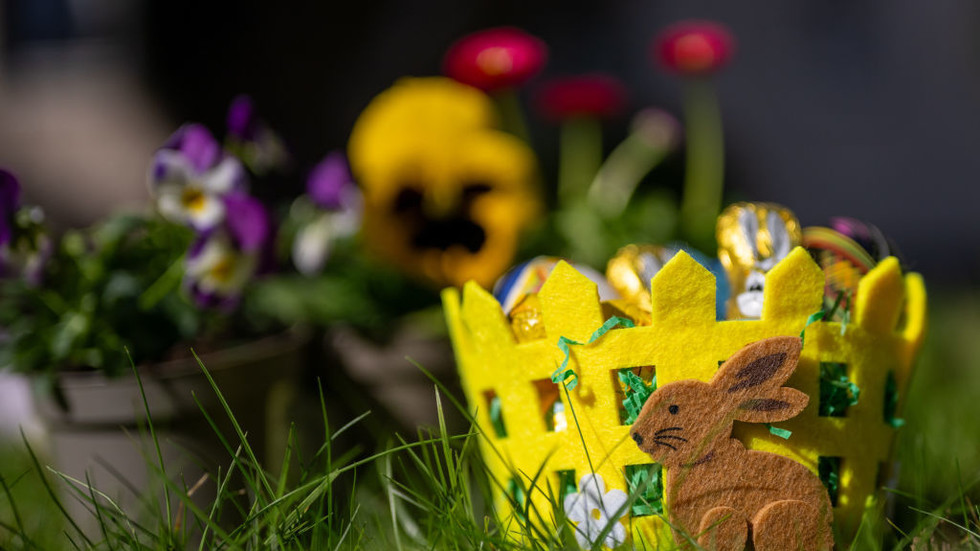Rafael Grossi, the chief of the International Atomic Energy Agency (IAEA), has warned that time is running out for Iran and the United States to reach a nuclear agreement.
Those comments come ahead of a second round of talks scheduled for Saturday between Tehran and Washington in Rome, with Oman acting as mediator.
Grossi, who leads the IAEA — responsible for monitoring the nature of Iran's nuclear programme — said during a visit to Tehran on Thursday, "We are at a critical stage in these important negotiations."
Speaking to several Iranian state media outlets, he added, "We are aware that time is short, which is why I am here...to help facilitate the process."
His remarks were later confirmed by the IAEA's headquarters in Vienna.
He also emphasised that the UN agency must play an active role in the negotiations.
Grossi said, "I am also in contact with the American negotiator to explore how the Agency can act as a bridge between Iran and the United States and assist in reaching a positive outcome."
On Thursday morning, Grossi met with Mohammad Eslami, the head of Iran's Atomic Energy Organisation, though no details of that meeting were released.
The daily newspaper Shargh reported, "This visit marks the beginning of a sensitive chapter in Iran's diplomacy."
In an interview with Le Monde published on Wednesday, Grossi stated that Iran is "not far" from being able to produce a nuclear bomb. He said: "There is still some distance to go, but one must acknowledge that it is not far."
Grossi had also stated the previous day regarding the agency's role in the negotiations that, "Everyone agrees that the Agency’s involvement is essential, regardless of the nature of the discussions. Without our presence, any agreement is merely a piece of paper."
Limiting or dismantling Iran’s nuclear programme?
After arrive in Iran on Wednesday, Grossi also held meetings with Abbas Araghchi, head of Iran's nuclear negotiation team, and Kazem Gharibabadi, the Deputy Foreign Minister.
On Thursday, Araghchi described his meeting with Grossi on social media platform X as "a constructive discussion", adding, "In the months ahead, the Agency can play a significant role in the peaceful resolution of Iran's nuclear file."
US negotiator Steve Witkoff stated on Tuesday that Iran must "halt and dismantle its nuclear enrichment and militarisation programme."
However, Tehran considers the complete cessation of its nuclear activities — even in civilian areas — a "red line."
Witkoff, who had on Monday called for a limitation of Iran’s uranium enrichment capacity, refrained from calling for a total dismantling of the nuclear programme.
Araghchi in Moscow
Ahead of Saturday's negotiations, Iran's Foreign Minister travelled to Moscow on Thursday.
Araghchi stated that the main purpose of his visit was to "deliver a written message" from Supreme Leader Ali Khamenei to Vladimir Putin.
This coincides with "recent developments and the indirect negotiations" between Iran and the United States. He added, "We have always held close consultations with our Russian friends on nuclear matters, and now is a good opportunity to continue those discussions with Russian officials."
Russia is one of the original signatories of the 2015 international nuclear deal with Iran.
The landmark agreement saw Iran receive sanctions relief in return for limits on its nuclear activities but the pact effectively collapsed following the US withdrawal in 2018.
The IAEA confirmed that Iran had adhered to its commitments to the deal until the US withdrawal.
Donald Trump, who returned to the White House in January, has expressed interest in negotiating a new deal with Iran, but has warned that if diplomacy fails, the United States may resort to bombing the country.
According to the IAEA, Iran is the only country enriching uranium to 60% despite not possessing nuclear weapons, a level dangerously close to the 90% required to produce a nuclear bomb.
At the same time, Tehran continues to stockpile large quantities of fissile material.
The 2015 nuclear agreement had capped Iran's uranium enrichment at 3.67%.

 1 day ago
6
1 day ago
6









